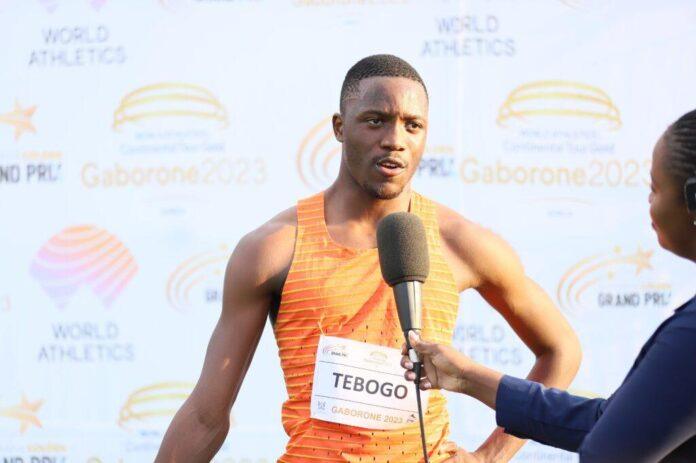Kutlo Motseta
28th April 2025
Athletics competitors often carry the hopes and expectations of their communities and are always expected to produce winning performances whenever they step on the track. But the reality of sprints is far different because athletes are only capable of meeting the publics expectations during calculated cycles in a year.
Winning an Olympic gold medal does not mean that an athlete can roll out bed on any given Sunday and run the same time which won them the Olympics.
The performance expectations in ball sports (soccer, etc) are different from the sprints. Performance in ball sports is more a product of creativity than physical competence. Football legends, Ronaldo Luiz Nazario De Lima of Brazil, Jomo Sono of South Africa, Diego Maradona of Argentina gained weight towards the end of their careers but could still compete against the best.
After several knee injuries Ronaldo lost his speed and adapted, relying on his timing to remain a scoring machine winning the World Cup with Brazil and the “Golden Boot Award” at the 2002 tournament for scoring the most goals. He remained the best striker in the world winning the “2002 FIFA World Football Player of the Year” (men) despite lacking his extraordinary sprinting speed, when he entered the world stage and won the same award in 1996 and 1997.
Thus, a soccer player can deliver a world class performance in any month of the year due to emphasis on ball and spatial creativity. But sprinters rely completely on the readiness of their bodies to deliver Olympic winning times. A human body cannot run at maximal speed 12 months a year, it ‘burns out’. There are cycles in a season during which the human body can run at optimal speed, which can be three, four months etc. This window period varies and depends on the training targets for the year.
In a world championship or Olympic year, the athletes who will medal, will generally not run their best times at the beginning of the season. They intentionally peak towards the main competition of the year, this year it will be at the world championships in September.
This is why the sprinting community always make assessment of progress with the ‘season’s opening times.’ In simple terms, this is the warming up phase. Several athletes are going through their warming up phase, for example Sherika Jackson (Jamaica), Gabrielle Thomas (USA), Letsile Tebogo (Botswana) etc. We saw Jackson and Tebogo at the Diamond League over the Weekend in China and Thomas at the Grand Slam in Jamaica a couple of few weeks ago. They were all way off their best running times.
In track and field there is a greater focus on clock running times, periods of delivering those running times than positions in a race outside the main competition of the year. Running a 100m or 200m world record many months before an Olympic or World Championship month may impress many but concern pundits and the athletes coaching staff because of the unlikelihood of the body maintaining such performances (clock times) till then.
Some people will note that athletes like Usain Bolt ‘never’ lost races in their careers. This is because he was very financially secure and as history’s highest paid sprinter, had a US$30 million annual deal with Puma and many endorsements. Thus, he could pick and choose his races and didn’t need unnecessary negative publicity and the public pressure of entering and losing races when his body was not ready to run fast times. Bolt always prepared his body to peak at the Olympics and world championships, because these are the races that define legacy in track and field, in that order.
Other races help to pay the bills and train athletes psychologically to settle their nerves for big races by running before an intimidating a sea of spectators and running alongside elite athletes.
Thus, the public should not be surprised when their sporting champions do not win every time they step on the track, especially when the World Championship’s – which in sprinting seasonal terms – are in a very long time, that is six months away.
Kutlo Motseta is a former athlete, who retired in his first year at university (2002). He was the Eastern Province men’s (South Africa) triple jump champion in 2002 at the age of 19 and as a medallist at the SA national school’s championships competed for South Africa at the Southern African Schools championships in 2001. He is also a certified sports journalist and former legal practitioner.









